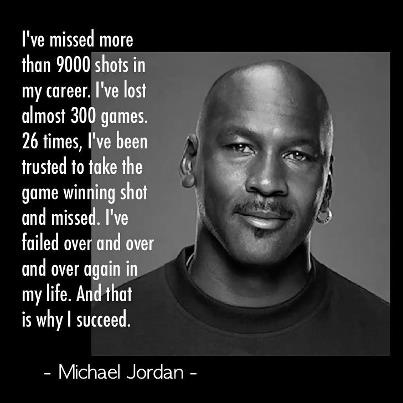“A lot of people thought it was fiction and this is all real stuff. I had visited my friends during the Thanksgiving break, Ray and Alice, who lived in this abandoned church. They were teachers at a high school I went to just down the road in the little town of Stockbridge, Massachusetts. And a friend of mine and I decided to help them clean up their church, and because I had gone to school there, I was familiar with all of these little back roads and nook-and-cranny places. And I knew a place that local people were using to get rid of their stuff….
So it wasn’t like some pristine virgin forest that we’d–you know, were screwing around with. And our pile of garbage, well, we couldn’t tell the difference once we threw ours down. But there was someone who could and that happened to be the local chief of police, a guy named Bill Obanhein, who we called Officer Obie. And he confronted us that next morning after Thanksgiving with our crime…
And I turned it into a little story. And then, of course, I decided to stay out of school because the civil rights movement was going on, the ban the bomb, clean the water, fix that, do this, you know, I mean, all the world was changing and I wanted to be where that was happening. And so I left school and, of course, that made me eligible as it were to, you know, join up and get sent over to Vietnam. And I didn’t really want to go and little did I realize that when I went down to the induction center that they–well, they found me ineligible, and I just couldn’t believe it. And so I turned it into a song. It took about a year to put together, and I’ve been telling it ever since just about…
I thought it’s probably just a story of a little guy against a big world. It’s just a funny tale, and I had–I still have–and I cherish the letters and the postcards and the pictures I got from the guys over in Vietnam, you know, who had little Alice’s Restaurant signs outside these tents in the mud…It became an underground thing not just here, but, you know, everywhere with guys on all sides of the struggles over there and the struggles that were going on here. And it overcame–it actually became now–really, it’s a Thanksgiving ballad more than an anti-war this or a pro-that or whatever it was. And I think it could only happen here…
Well, it’s celebrating idiocy you might say. I mean, thank God, that the people that run this world are not smart enough to keep running it forever. You know, everybody gets a handle on it for a little while. They get their 15 minutes of fame, but then, inevitably, they disappear and we have a few brief years of just hanging out and being ourselves.”
~ “Arlo Guthrie, Remembering Alice’s Restaurant”, All Things Considered 11/26/05
Arlo Guthrie would most likely agree that telling an elementary student he will not be “ready” for a myriad of post-secondary academic and vocational learning programs based on a single data point is like tellling a person they are not moral enough and eligible to serve in the military because they were once arrested for littering.
Students will learn more from text that is unpretentious and emotive rather than complex and informational. Readings in the classroom should stimulate student feelings and stir up emotions rather than stifle student feelings and suppress emotional responses.
Heavy emphasis on hard skills leaves students unprepared for the real “tests” in life. Students will be far better prepared for the academic, social, and emotional challenges of college and careers once they have learned how to connect with people and effectively manage their complex emotions, rather than training them to connect with and master complex informational text.
It is just as important that students learn how to master their thoughts, feelings, and emotions as learning to master complex informational text. A “good” education program will challenge students to learn about themselves and their values as much as they are challenged to learn about specific content and subject matter.
While it is important that employees can independently understand a company memo or employee manual it is eually important they have acquired the social and emotional skills to abide by it.
While Common Core enthusisats continue to extoll the virtues of hard skills and the importance of students being globally competitive, employers desire workers with soft skills who can collaborate with others.
“In a new study in partnership with American Express (AXP), we found that over 60 percent of managers agree that soft skills are the most important when evaluating an employee’s performance, followed by 32 percent citing hard skills and only 7 percent social media skills. When breaking down which soft skills were most important, managers chose the ability to prioritize work, having a positive attitude, and teamwork skills as their top three requirements for management roles…
Soft skills can’t easily be learned, they need to be developed over time. The big challenge for millennial workers is that they have weaker soft skills than older generations, who expect face-time and teamwork from them. Millennials have spent too much time with their collective noses buried in their iPhones and Facebook pages…”
Dan Schwabel, “The Soft Skills Managers Want” 9/4/13
“A survey by the Workforce Solutions Group at St. Louis Community College finds that more than 60% of employers say applicants lack “communication and interpersonal skills” — a jump of about 10 percentage points in just two years. A wide margin of managers also say today’s applicants can’t think critically and creatively, solve problems or write well.
As much as academics go on about the lack of math and science skills, bosses are more concerned with organizational and interpersonal proficiency. The National Association of Colleges and Employers surveyed more than 200 employers about their top 10 priorities in new hires. Overwhelmingly, they want candidates who are team players, problem solvers and can plan, organize and prioritize their work. Technical and computer-related know-how placed much further down the list…”
Martha C. White, “The Real Reason New College Grads Can’t Get Hired “ 11/10/13
While the chief architect of the Common Core is convinced that thoughts and feelings don’t matter, numerous studies have documented the EQ is a far better predictor of workplace success than IQ.
“A 30-year longitudinal study of more than a thousand kids – the gold standard for uncovering relationships between behavioral variables – found that those children with the best cognitive control had the greatest financial success in their 30s. Cognitive control predicted success better than a child’s IQ, and better than the wealth of the family they grew up in…
To further understand what attributes actually predict success, a more satisfying answer lies in another kind of data altogether: competence models…The abilities that set stars apart from average at work cover the emotional intelligence spectrum: self-awareness, self-management, empathy, and social effectiveness…
These human skills include, for instance, confidence, striving for goals despite setbacks, staying cool under pressure, harmony and collaboration, persuasion and influence. Those are the competencies companies use to identify their star performers about twice as often as do purely cognitive skills (IQ or technical abilities) for jobs of all kinds.
The higher you go up the ladder, the more emotional intelligence matters: for top leadership positions they are about 80 to 90 percent of distinguishing competences…”
Daniel Goleman, “What Predicts Success? It’s Not Your IQ” 7/17/14
Continuing to educate our students in a standardized feeling-free zone and data-driven “box” while encouraging them to think outside of it, is a far less effective means of preparing future collaborators, creators, and leaders than providing opportunities for diverse learners to unleash their talents and pursue their passions in an interest-driven and box-less learning environment.
“All [my] songs are encouraging me; I guess I write them for me,” Waters explains during a new documentary, Pink Floyd: The Story Of Wish You Were Here. “It’s to encourage myself not to accept a lead role in a cage, but to go on demanding of myself that I keep auditioning for the walk-on part in the war, ‘cause that’s where I want to be. I wanna be in the trenches. I don’t want to be at headquarters; I don’t wanna be sitting in a hotel somewhere. I wanna be engaged.”
~ Andrew Leahey, “Behind the Song: Pink Floyd’s Wish You Were Here” 8/30/12






